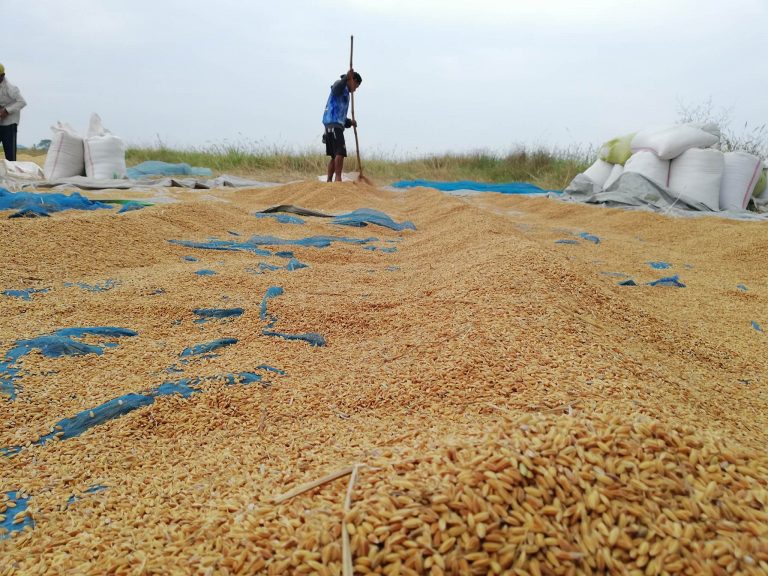Mawlamyine, 22 September
While the cost of rice production is high, the military council’s rice floor price is not the correct rate and may cause rice growers to suffer losses, said the farmers.
On 19 September, the Myanmar Rice Federation (MRF) released the rice floor price set for this year’s monsoon rice.
The MRF has set the rice reference price at 1.3 million kyats to 1.5 million kyats for 100 baskets of Emahta and Nga Sein paddy, 1.6 million Kyats to 1.8 million kyats for Ayeyarwaddy Paw Hsan, and 1.8 million kyats to 2 million kyats for Shwe Bo Paw Hsan.
The Myanmar Rice Federation said they engaged with rice-related groups to set a reasonable price, as directed by the military council, in order to stabilize the price of rice.
According to a rice farmer, this season’s reference price will be inconvenient for farmers because the cost of cultivating rice has risen substantially.
The MRF officials are not able to reduce the input and other costs and set the price of rice according to their wishes. It was inappropriate, he added.

The Myanmar Rice Federation said that the reference price was set in order to ensure that farmers make a decent return on agricultural production, millers and dealers get a reasonable profit, and not burden consumers.
A rice farmer also said that forcing farmers to trade at a price between 1.3 million kyats to 1.5 million kyats when Emahta rice is on sale at about 2 million kyats is oppressive to the farmers.
In addition, he added that the MRF is an organization formed by businessmen, and setting prices without asking about the current situation of the farmers on the ground makes the farmers lose profits.
As a result, farmers say that in the following rice planting seasons, they may have to grow less rice, and if they only produce enough to eat, there may be rice shortages.
Mon State has over 700,000 acres of monsoon rice, and over 400,000 baskets of rice are produced each year, with the milled rice distributed to some regions and states.
Rice farmers are suffering the same as other industries due to the devaluation of the Myanmar currency and rising input prices following the military coup.
News-Than Lwin Times
Photo-CJ

